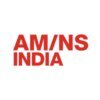
i
B5
Plus
Filter interviews by
B5 Plus Mechanical Maintenance Engineer Interview Questions and Answers
B5 Plus Mechanical Maintenance Engineer Interview Experiences
1 interview found
I applied via Naukri.com and was interviewed before Oct 2022. There were 3 interview rounds.

(1 Question)
- Q1. Engineering technical
(2 Questions)
- Q1. Salary Hike in percentage
- Q2. Salary Hike as per previous company
Interview Preparation Tips
But one thing i should aware you about Mechanical Maintenance Department. If you are going to the mechanical maintenance department, you will fill very high level of mental harresment by HOD- Divyesh Davis.
Let me explain you how, at time of leaving at 6:00 pm, he will open his eyes and tell you to complete your pending work, so during his session you will miss your bus and you must stay for more working hours, hence work is not much important/having high priority. The reason to stay is only to satisfy his ego.
If you don't stay, he will target you personally and torture you more and more. I only left for 20 days on time at 6:00 pm after my joining. Guys i don't want new commer in Maintenance department to suffer like this. Moreover you can not fell work life balance if you work with this type of Foolish Manager.
After my joining, in 16 months, More than 11 team members (Engineer- Executive- Assistant Manager) had resigned from post. Main reason is mental harassment. But no one wants to share this due to their future security.
HR TEAM PL. THINK ABOUT IT, HIGHLIGHT TO HIGHER AUTHORITY, WHY FREQUENT RESIGN FROM MAINTENANCE & UTILITY DEPARTMENT???
WORN DIVYESH SERIOUSLY, TO NOT TAKE NONSENCE ADVANTAGE OF CLOSE RELATION WITH HIGHER AUTHORITY
THIS IS ONLY REASON THAT, I RESIGNED FROM MY POST
HOPE THIS WILL HELP YOU OUT
THANK YOU BVC TEAM
Top trending discussions






Interview questions from similar companies

Mechanical Maintenance Engineer Interview Questions & Answers
Viraj Profilesposted on 24 Jun 2021
I applied via Company Website and was interviewed in Dec 2020. There was 1 interview round.
Interview Questionnaire
1 Question
- Q1. Mostly common maintenance related questions.
Interview Preparation Tips

Mechanical Maintenance Engineer Interview Questions & Answers
Jindal Steel and Powerposted on 27 May 2022
I applied via Campus Placement and was interviewed before May 2021. There were 2 interview rounds.
Most of the questions were from technical section.
(1 Question)
- Q1. #About my family #Place from which I belongs to #About job experience. # Tecnical question . #Safety .
Interview Preparation Tips
You have to developed your extra skills which can help you on the working field .

Mechanical Maintenance Engineer Interview Questions & Answers
Jindal Sawposted on 13 Apr 2025
I appeared for an interview before Apr 2024, where I was asked the following questions.
- Q1. Schematic diagram for a 4HI AGC MILL
- Ans.
A 4HI AGC mill features four rolls and automatic gauge control for precise thickness in metal rolling processes.
Four-High Configuration: The mill consists of two smaller rolls (work rolls) and two larger rolls (back-up rolls) to support the work rolls.
Automatic Gauge Control (AGC): This system automatically adjusts the roll gap to maintain the desired thickness of the material being processed.
Enhanced Control: AGC syst...
- Q2. Working of ammonia cracker
- Ans.
An ammonia cracker is a device that decomposes ammonia into hydrogen and nitrogen gases for various applications.
Ammonia cracking involves heating ammonia (NH3) to high temperatures (around 700-1000°C).
The process typically uses a catalyst, such as nickel, to facilitate the reaction.
The reaction can be represented as: 2 NH3 → N2 + 3 H2.
Cracked ammonia is used in hydrogen production for fuel cells and industrial process...

Mechanical Maintenance Engineer Interview Questions & Answers
JSW Groupposted on 4 Aug 2021
I applied via Campus Placement and was interviewed in Jul 2021. There was 1 interview round.
Interview Questionnaire
2 Questions
- Q1. In my interview asked questions related to my intresting subject
- Q2. Give your first impression
- Ans.
My first impression is a blend of curiosity and eagerness to contribute to the team's success through my mechanical expertise.
I noticed the emphasis on teamwork, which is crucial in maintenance roles; for example, collaborating with electricians during repairs.
The focus on safety protocols stood out, as I believe a safe work environment enhances productivity and morale.
I appreciated the advanced technology used in the ...
Interview Preparation Tips

Mechanical Maintenance Engineer Interview Questions & Answers
Shyam Steel Industriesposted on 22 Mar 2024
I applied via Company Website and was interviewed in Feb 2024. There was 1 interview round.
(5 Questions)
- Q1. Working principal of pump
- Ans.
Pumps work by creating a pressure difference to move fluid from one place to another.
Pumps use mechanical energy to increase the pressure of a fluid and move it through a system
They can be classified into different types such as centrifugal pumps, positive displacement pumps, etc.
The working principle involves the conversion of mechanical energy into hydraulic energy
Examples include water pumps in buildings, fuel pumps...
- Q2. What is working principal of cooling tower
- Ans.
Cooling towers work on the principle of evaporative cooling to remove heat from a process or building.
Cooling towers use water as a cooling medium to absorb heat from a process or building.
The hot water is pumped to the top of the tower and distributed over the fill media.
As the water flows over the fill media, some of it evaporates, taking away heat and cooling the rest of the water.
The cooled water is then collected ...
- Q3. Pollution bag filter specifications
- Ans.
Pollution bag filter specifications include material type, filtration efficiency, airflow capacity, and pressure drop.
Material type: Bag filters can be made of various materials such as polyester, polypropylene, or fiberglass.
Filtration efficiency: This indicates the percentage of particles the filter can capture. Higher efficiency filters are more effective but may have higher pressure drops.
Airflow capacity: The maxi...
- Q4. Softner water parameter
- Q5. What is the formula of centrifugal pump head
- Ans.
The formula for centrifugal pump head is H = (Q * SG) / (3.14 * D^2 * 2.31)
Head (H) is calculated using the flow rate (Q), specific gravity (SG), and diameter of the impeller (D)
The formula is derived from the basic equation for head in a centrifugal pump
Example: H = (100 gpm * 1.0) / (3.14 * 0.5^2 * 2.31) = 45.75 ft
Interview Preparation Tips

Mechanical Maintenance Engineer Interview Questions & Answers
Viraj Profilesposted on 20 Jan 2024
I applied via Naukri.com and was interviewed in Jul 2023. There was 1 interview round.
(2 Questions)
- Q1. What kind of hydraulic breakdown you faces
- Ans.
I have faced various hydraulic breakdowns in my career as a Mechanical Maintenance Engineer.
One common hydraulic breakdown is a leak in the hydraulic system, which can be caused by worn-out seals or damaged hoses.
Another issue is a hydraulic pump failure, which can occur due to excessive wear and tear or lack of proper maintenance.
Clogged or blocked hydraulic filters can also lead to breakdowns, as they restrict the fl...
- Q2. What is difference between hydraulic and pneumatic system
- Ans.
Hydraulic systems use liquid to transmit power, while pneumatic systems use compressed air.
Hydraulic systems use incompressible fluids like oil or water, while pneumatic systems use compressed air or gas.
Hydraulic systems can generate higher forces and are used in heavy machinery like cranes and excavators.
Pneumatic systems are lighter and more flexible, commonly used in applications like air brakes in vehicles.
Hydraul...

Mechanical Maintenance Engineer Interview Questions & Answers
ArcelorMittal Nippon Steelposted on 19 Nov 2022
I applied via Company Website and was interviewed in Apr 2023. There were 2 interview rounds.

(3 Questions)
- Q1. Machine maintenance
- Q2. Quality cheak upon
- Q3. Measurements machine component
Interview Preparation Tips

Mechanical Maintenance Engineer Interview Questions & Answers
ArcelorMittal Nippon Steelposted on 17 May 2024
(2 Questions)
- Q1. What is safety, What is Hazards.
- Ans.
Safety refers to measures taken to prevent accidents and injuries, while hazards are potential sources of harm or danger.
Safety involves implementing protocols and procedures to minimize risks in the workplace
Hazards are factors or situations that have the potential to cause harm
Examples of hazards include electrical hazards, chemical hazards, and ergonomic hazards
Safety measures may include training employees on prope...
- Q2. What is predictive maintenance.
- Ans.
Predictive maintenance is a proactive maintenance strategy that uses data analysis to predict when equipment failure is likely to occur.
Uses data analysis to predict when equipment failure is likely to occur
Helps in scheduling maintenance activities before a breakdown occurs
Reduces downtime and increases equipment reliability
Examples include vibration analysis, oil analysis, and thermography

Mechanical Maintenance Engineer Interview Questions & Answers
ArcelorMittal Nippon Steelposted on 12 Jan 2024
(5 Questions)
- Q1. Basic questions
- Q2. What is your name
- Q3. Total experience
- Q4. Are u interested
- Q5. What is preventive maintenance
- Ans.
Preventive maintenance is a proactive approach to maintenance that involves regularly inspecting, servicing, and repairing equipment to prevent breakdowns and extend its lifespan.
Preventive maintenance involves scheduled inspections and maintenance tasks.
It aims to identify and address potential issues before they cause equipment failure.
Examples of preventive maintenance include lubricating moving parts, replacing wor...
B5 Plus Interview FAQs
Tell us how to improve this page.
B5 Plus Interviews By Designations
- B5 Plus Electrical Maintenance Engineer Interview Questions
- B5 Plus Engineer Interview Questions
- B5 Plus Assistant Project Manager Interview Questions
- B5 Plus Electrical Engineer Interview Questions
- B5 Plus Senior Quality Engineer Interview Questions
- B5 Plus HR Manager Interview Questions
- B5 Plus Executive Accountant Interview Questions
- B5 Plus Transport Manager Interview Questions
- Show more
Interview Questions for Popular Designations
- Production Engineer Interview Questions
- Electrical Engineer Interview Questions
- Service Engineer Interview Questions
- Mechanical Engineer Interview Questions
- Maintenance Engineer Interview Questions
- Assistant Engineer Interview Questions
- Maintenance Manager Interview Questions
- Senior Electrical Engineer Interview Questions
- Show more
Overall Interview Experience Rating
based on 1 interview experience
Difficulty level
Duration
Mechanical Maintenance Engineer Interview Questions from Similar Companies
B5 Plus Mechanical Maintenance Engineer Reviews and Ratings
based on 1 review
Rating in categories
|
Sales Manager
14
salaries
| ₹6 L/yr - ₹20.4 L/yr |
|
Sales Executive
11
salaries
| ₹6.1 L/yr - ₹24 L/yr |
|
Production Engineer
7
salaries
| ₹7.2 L/yr - ₹9 L/yr |
|
HR Manager
7
salaries
| ₹8.4 L/yr - ₹18 L/yr |
|
Accountant
7
salaries
| ₹5 L/yr - ₹6.6 L/yr |

Tata Steel

JSW Steel

Jindal Steel and Power

ArcelorMittal Nippon Steel
- Home >
- Interviews >
- B5 Plus Interview Questions









